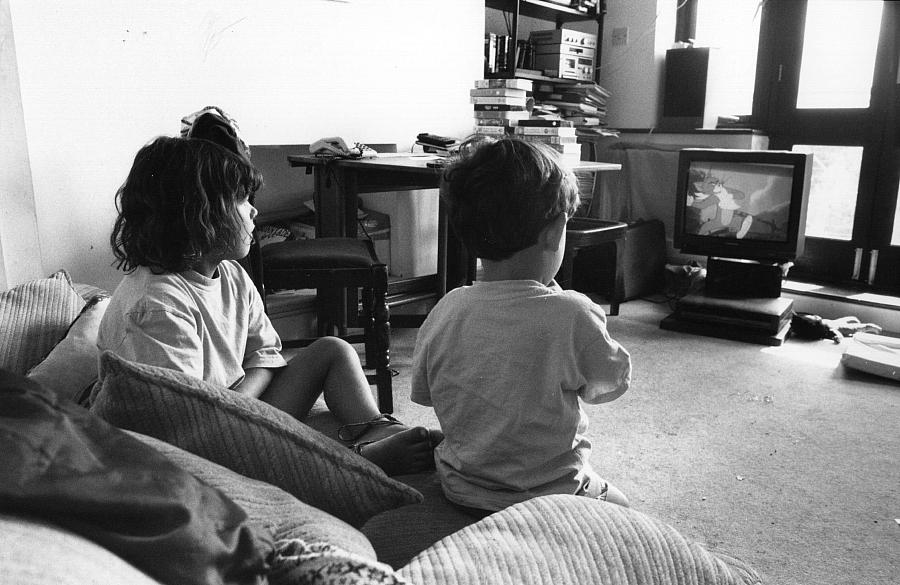Early childhood might not dictate your future, but it powerfully stacks the deck

Photo: Steve Eason/Getty Images
How strongly does childhood shape adult lives?
Quite a bit depends on how we answer that question. If we view childhood as a basically frivolous interlude whose hard knocks can be overcome with hard work and persistence later on, we might not have reason to invest much as a society in early childhood programs. But if we see the earliest years as laying down enduring tracks for everything from health to lifelong earning potential, then suddenly those first years become some of life’s most crucial.
Yet even if we stand on the shoulders of earlier research showing that early childhood experiences can shape adult health and well-being, the question of just how much they matter isn’t settled science. But a study out this week in the journal Nature Human Behaviour sheds new light on the question, showing that early childhood risks strongly predicted adult outcomes on measures such as criminal convictions, welfare benefits, hospitalizations and fatherless families.
The research draws on data from long-term tracking study that began in the early 1970s and tracked 1,037 New Zealanders from birth through age 38. That kind of time horizon gives researchers the rare chance to see how lives evolved over decades. For this latest study, researchers at Duke University, King’s College London and the University of Otago in New Zealand combined surveys responses and medical records with a host of government data on what they call “economically burdensome outcomes,” such as receiving welfare benefits or the number of hospital stays.
After comparing the data, researchers discovered they could strongly predict which of the Kiwis would experience problems as adults based on the risks they faced as children. Such risks included the socioeconomic environment kids grew up in, maltreatment, low self-control and low IQ test results. Even a single measure — a brain health assessment at age 3 — was nearly as predictive as all of those put together. In both scenarios, such early risks and traits provided a high-probability arrow that pointed to future problems, as the study explains:
Given two 3-year-old children (one who grew up to belong to multiple high-cost groups and one who grew up to belong to none), the model was able to classify them accurately 80 percent of the time.
A small slice of the group punched well above their weight: About one-fifth of the subjects tracked for the study were responsible for up to 80 percent of such “bad” outcomes. (Fun side note: This neatly conforms with a broader pattern known as the Pareto principle or 80-20 rule: About 80 percent of “effects” come from 20 percent of “causes.”) Terrie Moffitt of Duke University, one of the authors of the study, told the Guardian:
About 20 percent of the population is using the lion’s share of a wide array of public services and we found that the same people use most of the national health service, the criminal courts, insurance claims for disabling injury, pharmaceutical prescriptions and social welfare benefits.
The figure varies considerably by category: 22 percent of the cohort account for 81 percent of criminal convictions; 77 percent of fatherless upbringings; and 54 percent of cigarettes smoked, to name a few of the categories researchers term high-cost because of the economic burdens they impose on society. (This Duke graphic provides a helpful overview.)
Studies like these deepen the pool of evidence for the idea that early childhood really matters, and that interventions during the first few years of life are more powerful than our investments suggest. The study’s authors suggest that the playing field is rigged in lasting ways:
[T]he predictions reported here make clear that the most costly adults in our cohort started the race of life from a starting block somewhere behind the rest, and while carrying a heavy handicap in brain health.
That statement, vivid by research standards, seems designed to rile an easy faith in meritocracy and lay out the moral ground for more robust early childhood interventions that target the worst-off kids. That notion of a tilted playing field is why other leading early childhood researchers such as Harvard’s Jack Shonkoff repeatedly speak with urgency about the need for bold, new experiments and innovations to buffer very young kids from difficult childhoods, and unwind the damage when prevention is too late.
Others, such as the Nobel laureate James Heckman of the University of Chicago, offer an alternative to the strictly moral argument by making an economic case. In a new working paper released just this week, Heckman and a team of colleagues found that a well-known early childhood program targeting disadvantaged kids and families generated a return of $6.30 to society for every dollar spent.
It doesn’t take a big-league businessman to conclude that’s a great deal.
**
Related posts
Preschool is important, but years before are crucial
Leading early childhood expert seeks missing breakthroughs
With spotlight on childhood adversity, new data offer finer-grained view
Just how does childhood adversity turn into poorer health?
We know toxic stress is damaging to kids, but how do we fight it?
New study of classic early childhood program shows big health gains
Can ‘precision medicine’ help frame the fight against childhood adversity?
Q&A: NPR’s Laura Starecheski reports on childhood adversity: Parts One & Two

